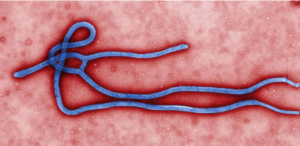Hawaii officials on alert after Ebola scare

Ebola Virus
By Malia Zimmerman | Watchdog.org
HONOLULU – Medical officials responded to an Ebola scare by placing a patient in isolation.
The patient at The Queen’s Medical Center on Wednesday did “not meet the criteria for testing,” the Department of Health announced.
Department of Health Director Dr. Linda Rosen said the hospital acted in the best interests of the community and with an “abundance of caution.”
The Queen’s Medical Center did not comment on the case and referred all calls to the Department of Health.
The scare comes just days after the Centers for Disease Control and Prevention confirmed Tuesday a patient who traveled to Dallas from West Africa tested positive for Ebola. The patient was quarantined at the Texas Health Presbyterian Hospital of Dallas.
Janice Okubo, spokeswoman for the Hawaii state Department of Health, said the agency continues to work with the hospitals as well as county, state and federal agencies in case Ebola reaches Hawaii.
If a possible Ebola case is identified at a hospital, the patient will be put in isolation, Okubo said, after which the health department will work with the hospital and CDC to conduct an investigation and determine testing .
The Hawaii scare was “good practice for the possibility,” Okubo said, and a “good wake-up call to the health-care community to keep alert and strengthen relationships.”
John M Berestecky, Ph.D., a professor of Microbiology at the University of Hawaii’s Kapi‘olani Community College, worked in Liberia last year and returned to check on a medical center education practice in July, just as Ebola was hitting Liberia. He was there for a month during the outbreak.
If a small outbreak were to hit Hawaii or the mainland, Berestecky is confident the outbreak could be contained.
Unlike the United States, Liberia has no sewage system or water system and very few areas have electricity, Berestecky said, making it much easier for the disease to spread. In terms of the virus getting to the United States, Berestecky said, passengers from West Africa are being closely monitored through surveys and a brief physical review to ensure they don’t have a fever when boarding or leaving the aircraft.
Ebola is only contagious through bodily fluids and only when a patient has a fever, Berestecky said.
“There is no point in getting hysterical or too worried about contracting the Ebola virus in the United States. The risk of infection is extremely small. It is much less contagious that the common cold or influenza,” Berestecky said. “All hospitals and clinics are aware there is an epidemic in West Africa. Even if a small outbreak would occur, it would be handled it very quickly.”







